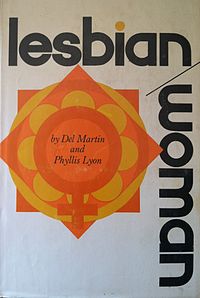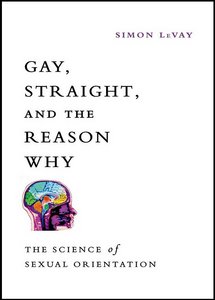Radical feminism is a perspective within feminism that calls for a radical re-ordering of society in which male supremacy is eliminated in all social and economic contexts, while recognizing that women's experiences are also affected by other social divisions such as in race, class, and sexual orientation. The ideology and movement emerged in the 1960s.

Sex tourism is the practice of traveling to foreign countries, often on a different continent, with the intention of engaging in sexual activity or relationships in exchange for money or lifestyle support. This practice predominantly operates in countries where sex work is legal. The World Tourism Organization of the United Nations has acknowledged about this industry is organized both within and outside the structured laws and networks created by them.
Sex-positive feminism, also known as pro-sex feminism, sex-radical feminism, or sexually liberal feminism, is a feminist movement centering on the idea that sexual freedom is an essential component of women's freedom. They oppose legal or social efforts to control sexual activities between consenting adults, whether they are initiated by the government, other feminists, opponents of feminism, or any other institution. They embrace sexual minority groups, endorsing the value of coalition-building with marginalized groups. Sex-positive feminism is connected with the sex-positive movement. Sex-positive feminism brings together anti-censorship activists, LGBT activists, feminist scholars, producers of pornography and erotica, among others. Sex-positive feminists believe that prostitution can be a positive experience if workers are treated with respect, and agree that sex work should not be criminalized.

Eros and Civilization: A Philosophical Inquiry into Freud is a book by the German philosopher and social critic Herbert Marcuse, in which the author proposes a non-repressive society, attempts a synthesis of the theories of Karl Marx and Sigmund Freud, and explores the potential of collective memory to be a source of disobedience and revolt and point the way to an alternative future. Its title alludes to Freud's Civilization and Its Discontents (1930). The 1966 edition has an added "political preface".
Sheila Jeffreys is a former professor of political science at the University of Melbourne, born in England. A lesbian feminist scholar, she analyses the history and politics of human sexuality.
Prostitution in Iceland is thriving despite paying for sex being illegal.

Julie Bindel is an English radical feminist writer. She is also co-founder of the law reform group Justice for Women, which has aimed to help women who have been prosecuted for assaulting or killing violent male partners.

The sex industry consists of businesses that either directly or indirectly provide sex-related products and services or adult entertainment. The industry includes activities involving direct provision of sex-related services, such as prostitution, strip clubs, host and hostess clubs and sex-related pastimes, such as pornography, sex-oriented men's magazines, women's magazines, sex movies, sex toys and fetish or BDSM paraphernalia. Sex channels for television and pre-paid sex movies for video on demand, are part of the sex industry, as are adult movie theaters, sex shops, peep shows, and strip clubs. The sex industry employs millions of people worldwide, mainly women. These range from the sex worker, also called adult service provider (ASP), who provides sexual services, to a multitude of support personnel.
Sex trafficking in Thailand is human trafficking for the purpose of sexual exploitation and slavery that occurs in the Kingdom of Thailand. Thailand is a country of origin, destination, and transit for sex trafficking. The sexual exploitation of children in Thailand is a problem. In Thailand, close to 40,000 children under the age of 16 are believed to be in the sex trade, working in clubs, bars, and brothels.

Virtual Equality: The Mainstreaming of Gay and Lesbian Liberation is a 1995 book about gay rights by lawyer and civil rights activist Urvashi Vaid, in which the author argues that LGBT movements in the United States have been only partially successful in achieving their goals, and that gay and lesbian Americans continue to suffer from discrimination and other problems. Vaid maintains that the American gay rights movement must reconsider its tactics and move from advocacy of civil equality to aiming at social change.

One Hundred Years of Homosexuality: and other essays on Greek love is a 1990 book about homosexuality in ancient Greece by the classicist David M. Halperin, in which the author supports the social constructionist school of thought associated with the French philosopher Michel Foucault. The work has been praised by several scholars, but criticized by others, some of whom have attributed to Halperin the view that the coining of the word "homosexuality" in the nineteenth century brought homosexuality into existence. The book was often reviewed alongside John J. Winkler's The Constraints of Desire (1990).

The Man of Reason: "Male" and "Female" in Western Philosophy is a book about the association between maleness and reason in western philosophy by the Australian philosopher Genevieve Lloyd. The work received positive reviews. It has been called a twentieth century classic of feminist thought, and is widely read in the Nordic countries.

Lesbian/Woman is a work by the feminist and gay rights activists Del Martin and Phyllis Lyon, in which the authors discuss what it means to be a lesbian. The book was influential and is considered a foundational text of lesbian feminism. Reviewers believed that it benefited from its authors' personal experience as lesbians, and endorsed its criticisms of the treatment of lesbians by religious and professional organizations.
Feminist views on sexuality widely vary. Many feminists, particularly radical feminists, are highly critical of what they see as sexual objectification and sexual exploitation in the media and society. Radical feminists are often opposed to the sex industry, including opposition to prostitution and pornography. Other feminists define themselves as sex-positive feminists and believe that a wide variety of expressions of female sexuality can be empowering to women when they are freely chosen. Some feminists support efforts to reform the sex industry to become less sexist, such as the feminist pornography movement.

Marxism and the Oppression of Women: Toward a Unitary Theory is a book by the sociologist Lise Vogel that is considered an important contribution to Marxist Feminism. Vogel surveys Karl Marx and Friedrich Engels's comments on the causes of women's oppression, examines how socialist movements in Europe and in the United States have addressed women's oppression, and argues that women's oppression should be understood in terms of women's role in social reproduction and in particular in reproducing labor power.

Gay, Straight, and the Reason Why: The Science of Sexual Orientation is a book by the neuroscientist Simon LeVay and published by Oxford University Press. The book received mainly positive reviews, praising it for LeVay's wide-ranging overview of scientific research on sexual orientation. In 2012, it received the Bullough Book Award for the most distinguished book written for the professional sexological community published in a given year.

Sexuality and Its Discontents: Meanings, Myths, and Modern Sexualities is a 1985 book about the politics and philosophy of sex by the sociologist Jeffrey Weeks. The book received positive reviews, crediting Weeks with explaining the theories of sexologists and usefully discussing controversial sexual issues. However, Weeks was criticised for his treatment of feminism and sado-masochism.

Sex and Reason is a 1992 book about human sexuality by the economist and federal judge Richard Posner, in which the author attempts to explain sexual behavior in economic terms and discusses a range of controversial subjects related to sex, proposing reforms in American laws.

What Wild Ecstasy: The Rise and Fall of the Sexual Revolution is a 1997 book about the sexual revolution by John Heidenry. The book received mixed reviews. It was described as interesting and Heidenry was complimented for his discussions of figures such as Bob Guccione, Hugh Hefner, Larry Flynt, and Reuben Sturman. However, he was criticized for his research methods. He was accused of plagiarism because of the use he made of material by other writers, receiving criticism in particular from the journalist Philip Nobile. Critics also wrote that he focused disproportionately on pornography and gave insufficient attention to feminism and women's issues.

Feminist perspectives on sex markets vary widely, depending on the type of feminism being applied. The sex market is defined as the system of supply and demand which is generated by the existence of sex work as a commodity. The sex market can further be segregated into the direct sex market, which mainly applies to prostitution, and the indirect sex market, which applies to sexual businesses which provide services such as lap dancing. The final component of the sex market lies in the production and selling of pornography. With the distinctions between feminist perspectives, there are many documented instances from feminist authors of both explicit and implied feminist standpoints that provide coverage on the sex market in regards to both "autonomous" and "non-autonomous" sex trades. The quotations are added since some feminist ideologies believe the commodification of women's bodies is never autonomous and therefore subversive or misleading by terminology.














